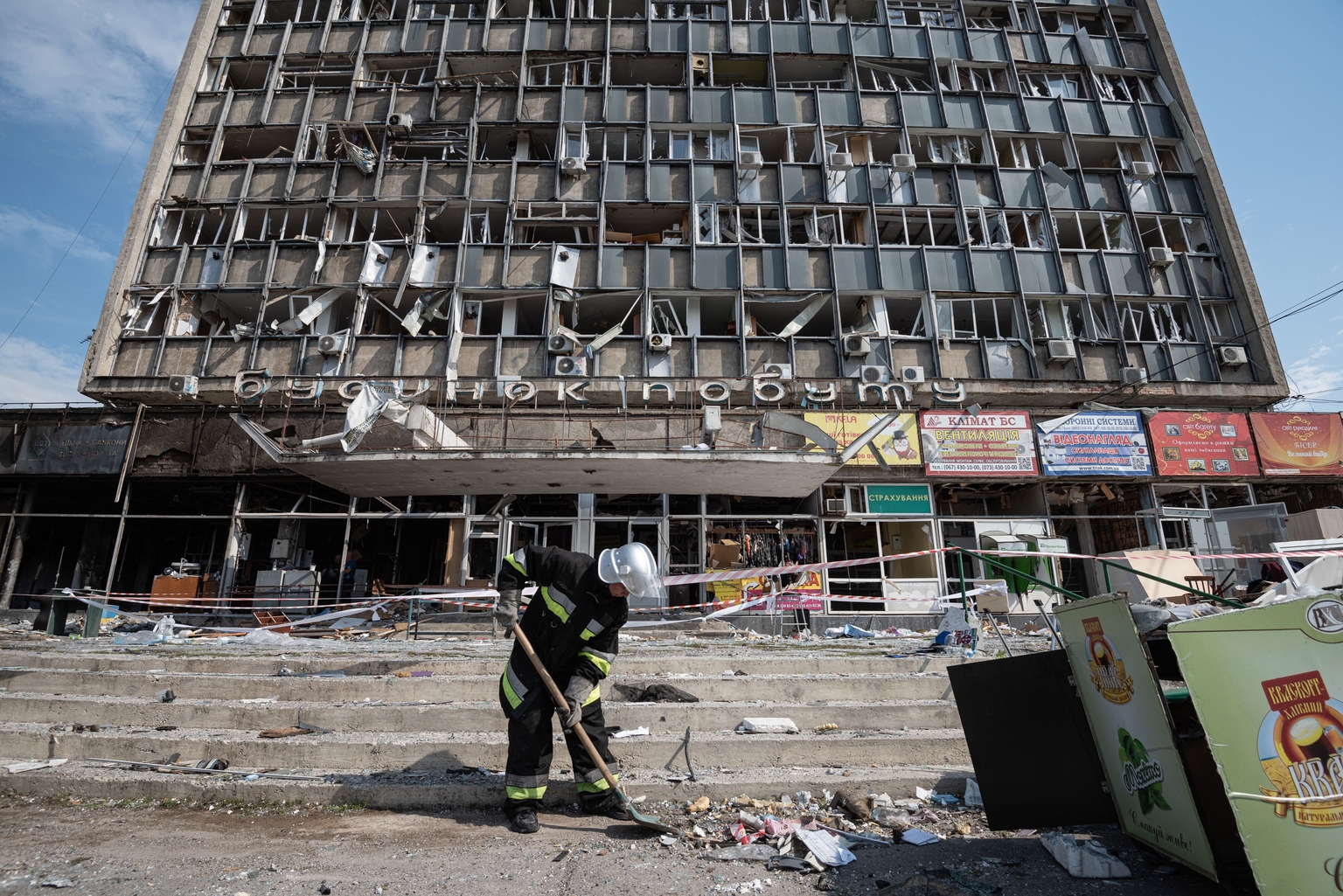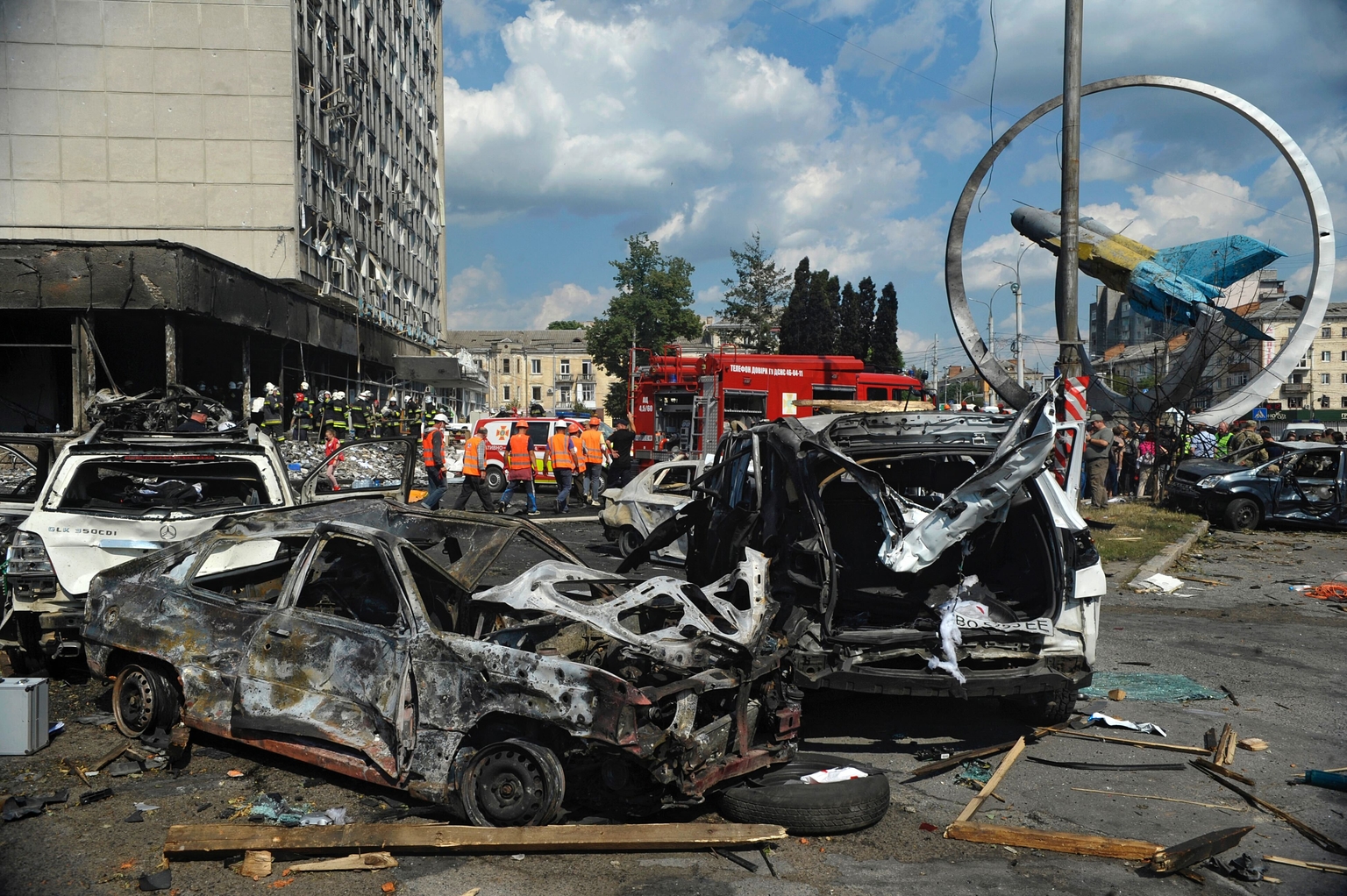Wife of Russian missile strike victim: ‘When I found my husband, he was a bloodied mess’
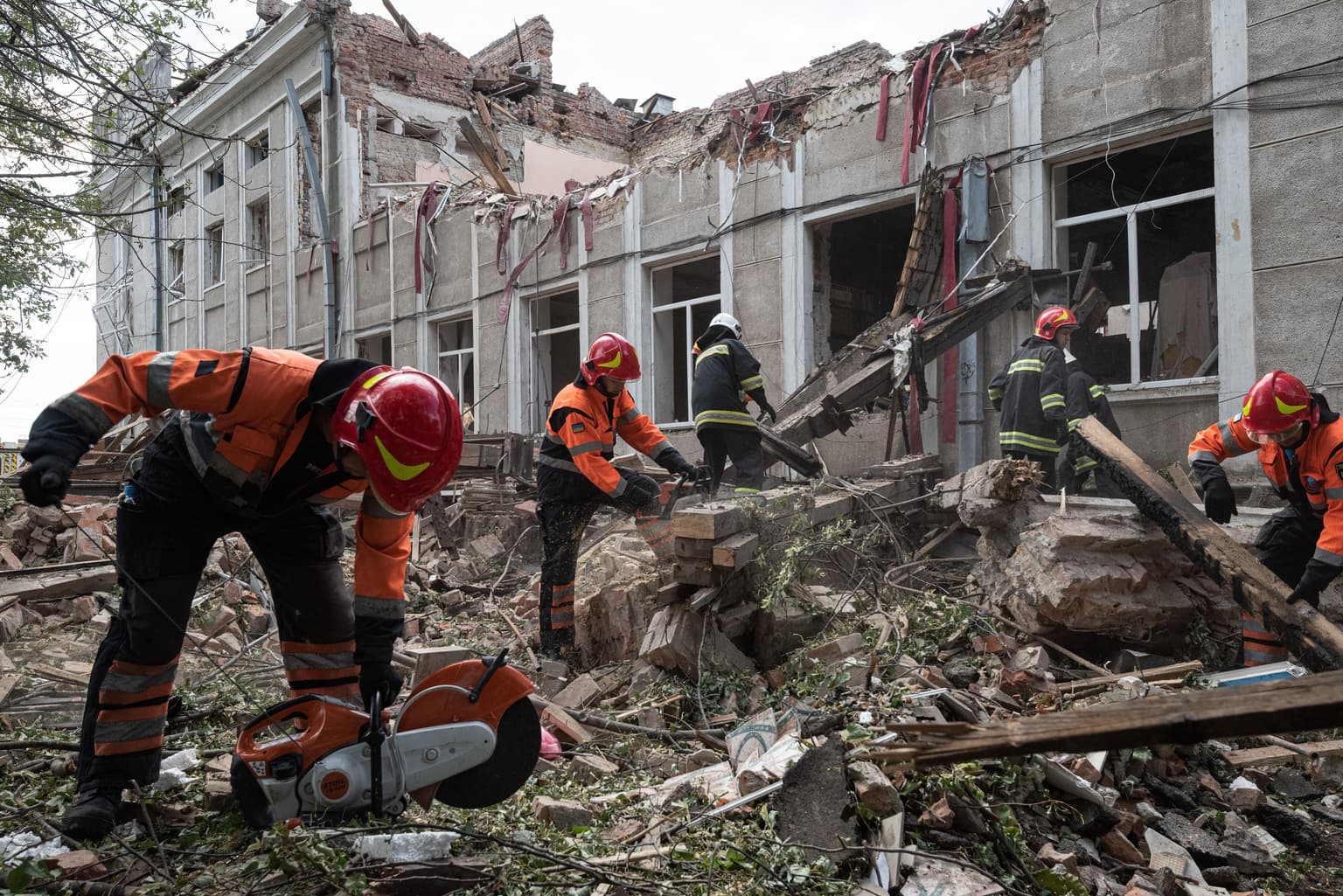
VINNYTSIA – Of the more than 100 people who sought medical attention at the local hospital after Russian missiles struck the central Ukrainian city of Vinnytsia on July 14, Tetyana Drobotyn was looking for just one, her husband.
“It was just a mess. Doctors were performing CPR right in the hallway, there was a lot of blood. Patients covered in blood, doctors covered in blood,” she told the Kyiv Independent, standing in front of the hospital ward.
She couldn’t find her husband. After two hours of desperately searching for him, a medical worker told her: “Come with me to identify him.”
Drobotyn thought her husband was dead and froze in shock.
“No, don’t worry,” the medical worker said to calm her down. “They all arrive with their faces shattered and bloody, we wash them but they are still unrecognizable. Go take a look.”

When she entered the intensive care unit she understood what the nurse meant: the men she saw were unrecognizable, their faces injured and bandaged.
“You know your husband, but you look at them and hesitate. They all look the same,” she said.
“When I found my husband, all I saw was a bloodied mess,” Drobotyn went on.
The missile strike hit an office building and a cultural site in central Vinnytsia, a city that has been relatively safe since the beginning of Russia's all-out war on Feb. 24.
The attack killed at least 23 people, including three children, according to the Vinnytsia City Council. Some 183 people were injured.
Read also: Victims ‘burned alive’ in deadly Russian strike on Vinnytsia, says local prosecutor
The strike also damaged 49 nearby buildings, according to the local authorities.
Canceled concert
Just an hour before the missiles hit the city, Drobotyn had wished her husband, Vitaliy Kabluchko, 44, a good day.
Kabluchko had an important one ahead of him. He was an event organizer for a big charity concert that evening with the popular band Vopli Vidopliassova and its frontman, Oleh Skrypka, was set to perform.
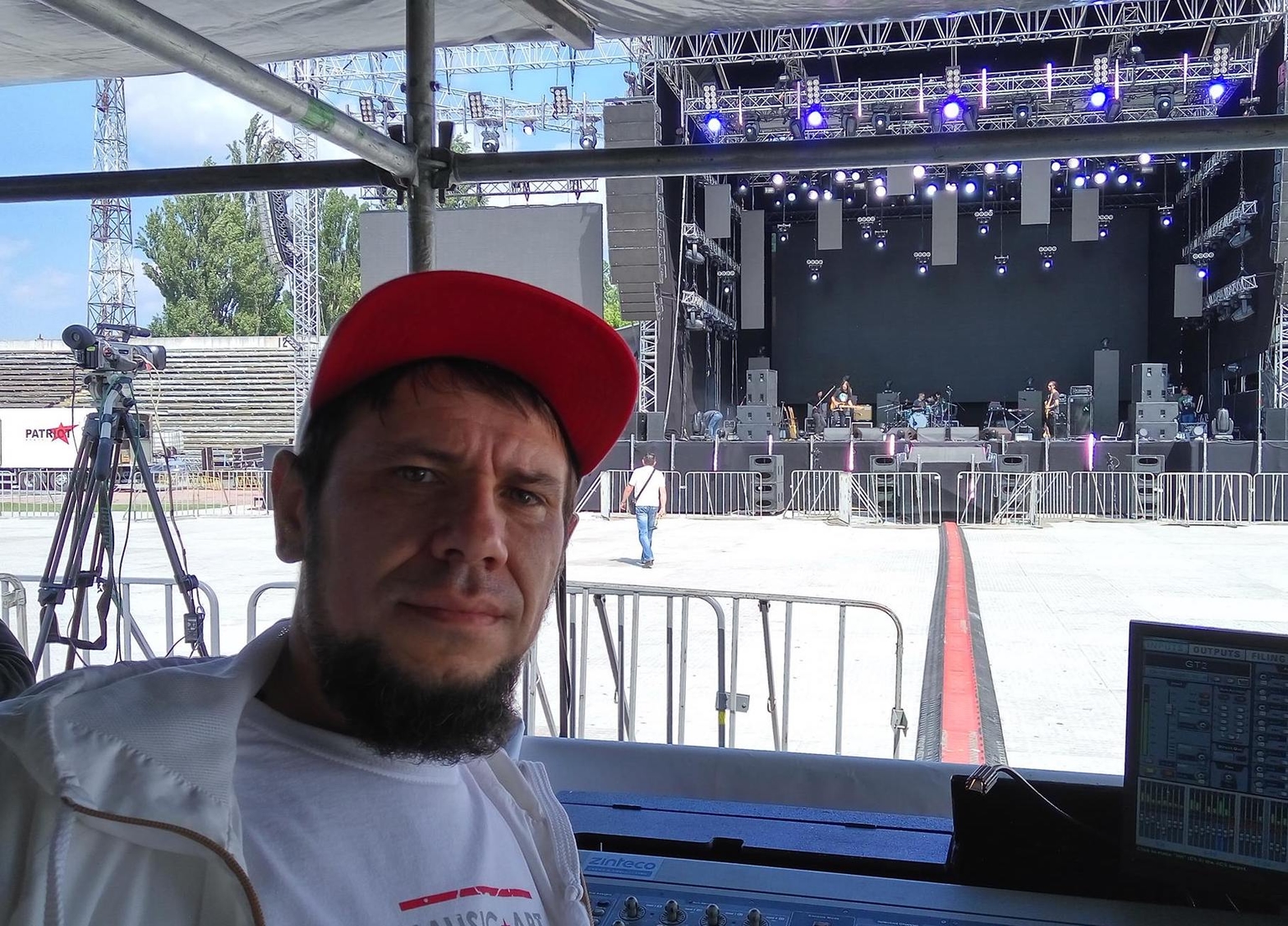
The concert was supposed to take place in the House of Officers, a local concert hall. That’s where the missiles hit around 11 a.m. on July 14.
When it happened, Kabluchko was with his colleague and friend, Viktor Polishchuk. Together they were loading a car with musical equipment for another upcoming show.
“All I remember is an explosion, heat, and silence,” Kabluchko told his wife after regaining consciousness in the hospital.
The first question he asked was about his friend Polishchuk: “I was pulling him out of the car, I was pulling him out. Where is he?”
Drobotyn first lied and said that Polishchuk must be in a different hospital. She later confessed to her husband that his friend had been killed by the strike.
“He cried,” Drobotyn said through tears.
“He is blaming himself that he did not manage to save him,” she went on.
According to Drobotyn, Polishchuk died from severe blood loss after shrapnel hit his neck.
Kabluchko, meanwhile, is among seven people fighting for their lives in an intensive care unit of the hospital.
He has burns, shrapnel wounds, an injury to the chest, right hand and left leg: “He is having a hard time losing his friend while in a difficult condition himself.”
Polishchuk is survived by his wife and daughter.
He was involved in "an incredible number of events, concerts and movements in the cultural field," his friend Yuriy Stepanets wrote on Polishchuk's Facebook profile.
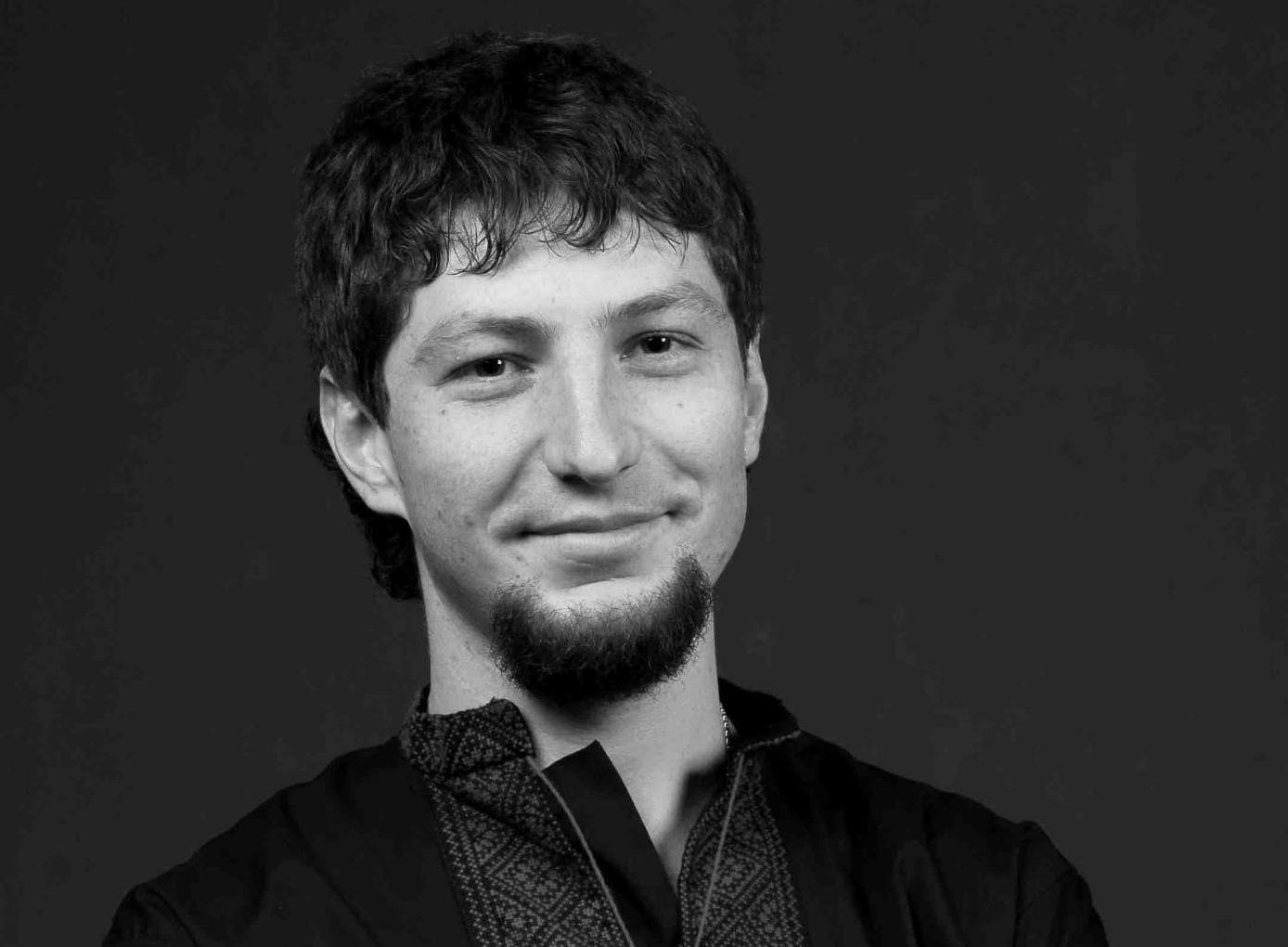
Polishchuk, however, was not the only victim from the music industry who had been helping to organize the concert in Vinnytsia.
Yevhen Kovalenko, 25, was a sound engineer who had worked with numerous Ukrainian artists, including the singers Roxolana and Vadym Oleinik.

According to the singer Roxolana, who was also planning to hold a charity concert on July 14, Kovalenko was part of her team when he was killed. People he’d worked with went online to mourn his loss.
"Our sound engineer Yevhen went into eternity," Oleinik said on Instagram. "He was a really cool guy. I think of him and cry. He was in the House of Officers building in Vinnytsia because he was a real professional and worked to the fullest. Fly, Zheka (a nickname for Yevhen), we'll miss you. RIP."
Killing the youth
Many of the 23 people killed by the missile strike in Vinnytsia were young people and families.
Three children were killed, with the youngest victim being a 4-year-old named Liza. Her picture in a baby stroller lying upside down on the ground shocked the world. Liza’s mother Iryna was badly injured and remains in intensive care.

Liza had Down syndrome and was walking with her mother to meet a speech therapist at the children’s center LogoClub when she was killed. The center described Liza as a "kid with bright eyes, always cheerful, always happily running to classes."
"It was so wonderful to smile in response to your smile," the center wrote on Facebook. "Our smart girl, our pride, our joy. Lizochka, today you became a sunbeam. You will forever remain in our hearts."
Ukraine's First Lady Olena Zelenska, who appeared with Liza in a Christmas video shoot, also issued a statement, reminiscing about her time with the little girl.
“A bright, sincere, happy child, who grew up surrounded by love. The little mischievous one managed to get paint not just on herself and her holiday dress but on all the other children, me, the operators, and the director.”
Among the young people killed in Russia’s attack was Alina Kisil, a 25-year-old who worked at a PrivatBank branch inside the House of Officers building. Four of her colleagues are in critical condition.
People who knew Kisil expressed shock and disbelief under posts about Kisil’s death.
"Alinka, the pain is inexpressible, I can't believe it," wrote Oksana Shkonda. "You had so much life, you were so kind and earnest, your life was only beginning, so many plans for the future, so many dreams. For what?"
Private clinic targeted
Many of the victims were inside the Neuromed clinic, located on the first floor of a residential building. The clinic bore the brunt of the blast, killing its administrator, Kateryna Hula, 24 and its manager, Tetiana Kharchenko.

Both had studied at the Vinnytsia Institute of Trade and Economics and, going by social media posts, were loved by their colleagues and the people in their lives.
"I used to work with Kateryna, she was a very kind girl, always smiling," Almora Osadnik wrote on Facebook, "Eternal memory."
Kateryna is the sister of journalist Yuriy Hula, whose heartbroken post about losing her was followed by a post that Russia is a terrorist state.
Among the people in the Neuromed clinic during the attack is Victoria Rekuta, 35, a dentist.
She was originally from the village of Mala Mochulka in the region but was visiting the clinic with her 7-year-old son Maksym Zhariy, when a Russian missile hit the building. Both she and her child died in the blast, according to the Haysinska District Council.

Among the very few people inside Neuromed who survived the attack are doctors Pavlo Kovalchuk and Natalia Falstynska. They are in intensive care.
Eighty victims, including three children, remain in hospitals across Vinnytsia. Seven patients are in critical condition in the city’s emergency hospital and another eight are in the Vinnytsia Oblast Hospital. Doctors don’t allow journalists to see them.
Rescuers are still looking for another 11 people who are considered missing.


